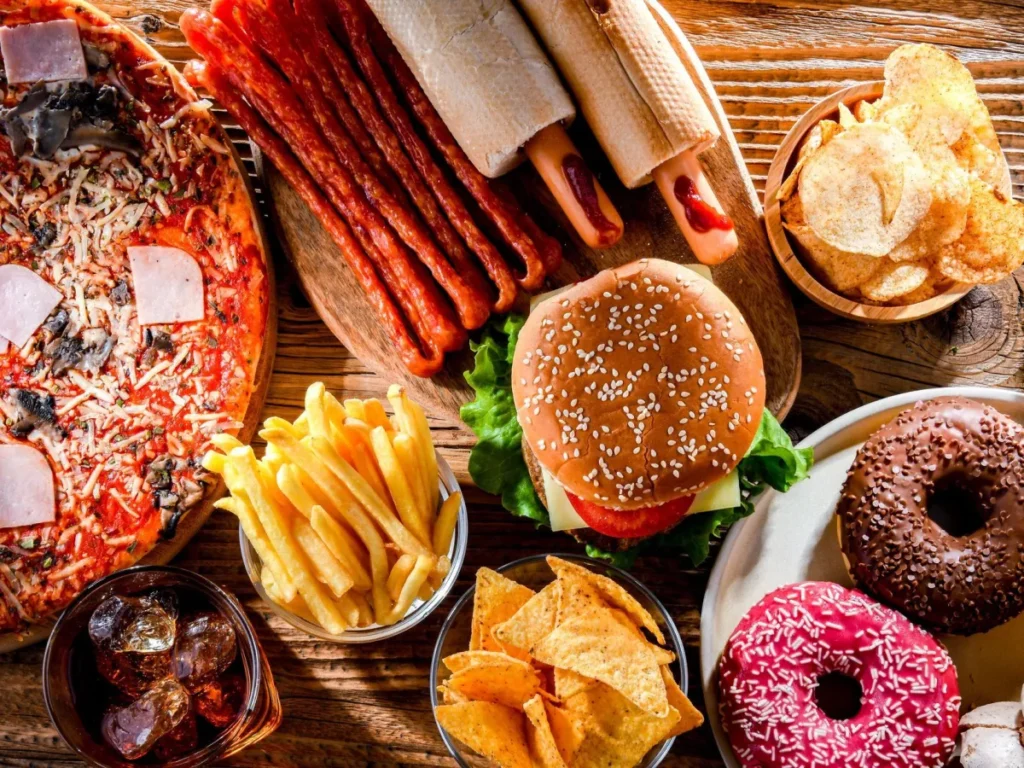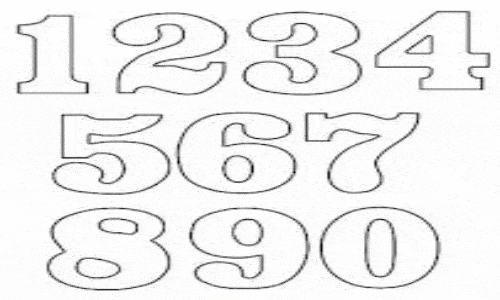Advertisements
The modern diet is full of hidden surprises, and one of the most intriguing and concerning is the presence of sugar in processed foods. This sweet ingredient, although often invisible to the naked eye, can have a significant impact on health and well-being. Processed foods are packed with sugar in disguise, contributing to a range of health problems, from weight gain to chronic disease. The quest for a healthier diet starts with knowing and identifying these hidden sugars.
Many foods that seem harmless, or even healthy, are actually loaded with added sugars. Products like sauces, breads, and even some brands of yogurt are just the tip of the iceberg when it comes to hidden sugars. Understanding how to read nutrition labels and recognizing the different names sugar can go by is a crucial step on the journey to a more balanced diet.
Advertisements
In addition to exploring where sugar is hiding, this guide offers practical strategies for reducing your daily intake. From choosing healthier alternatives to meal prep tips, you can make changes that benefit your body and mind. The key is to make informed, conscious choices that promote not only your health, but also a more sustainable lifestyle.
In a world where sugar seems inevitable, educating yourself about its pitfalls and learning how to avoid it can be transformative. Embracing a healthy diet is not just a fad, but a necessity for those who want to improve their quality of life.🌿 Discover the secrets behind the labels and take the first step towards a diet that truly nourishes you.
Advertisements

The Impact of Hidden Sugar on Health
Sugar may be sweet and satisfying, but consuming too much can have serious health consequences. Unfortunately, many packaged foods are loaded with hidden sugars, making it challenging to control your intake. Added sugar is often linked to an increased risk of chronic diseases like type 2 diabetes, obesity, and heart disease. When we consume foods high in sugar, our bodies respond by releasing insulin to help process the glucose. Over time, this overload can lead to insulin resistance, a condition that is a precursor to type 2 diabetes. Additionally, sugar can have a negative impact on dental health, contributing to cavities and gum disease.
Excessive sugar consumption is also associated with mood and energy changes. After the initial glucose spike, many people experience a significant drop in energy, known as a sugar crash, which can result in fatigue and irritability. To stay healthy, it’s essential to be aware of hidden sugar in processed foods and seek out healthier alternatives. 🌿
Identifying Hidden Sugar on Labels
Reading food labels is a crucial skill for anyone looking to reduce their sugar intake. Sugar is often disguised under lesser-known names, making it difficult to identify. In addition to “sugar,” there are many other terms that indicate the presence of added sugars. Some of the most common are:
- Fructose
- Sucrose
- Corn syrup
- Malt
- Maltodextrin
- Honey
- Agave syrup
- Brown sugar
- Dextrose
When examining a label, it is important to look not only at the amount of sugar listed, but also at the ingredients list to identify any added sugars.
Another thing to consider is the position of sugar in the ingredients list. If it appears among the first ingredients, this indicates that there is a significant amount of sugar in the product. Additionally, some foods, such as ready-made sauces, yogurts and breakfast cereals, may contain more sugar than you might think, even if they don’t have a pronounced sweet taste. Paying attention to these details can make a big difference in your daily sugar intake.
Recommended Articles
Healthy Alternatives to Industrialized Sugar
Replacing refined sugar with healthier alternatives can be an important step toward improving your diet. Honey and maple syrup, for example, are natural sweeteners that, in moderation, can provide a satisfying sweetness with added benefits, such as antioxidants. However, it is important to use these alternatives in moderation, as they also contain calories and can impact blood glucose levels.
Another option is stevia-based sweeteners, a natural, calorie-free sweetener that does not affect blood sugar levels. Stevia is a great alternative for those who want to reduce their sugar intake without sacrificing sweetness. Additionally, using spices like cinnamon and vanilla can help enhance the sweetness of foods, reducing the need for sugar.
Incorporating fresh and dried fruits into your diet is also a great way to add natural sweetness to your meals. Fruits contain natural sugars along with fiber, vitamins, and minerals, making them a more nutritious option. Try adding mashed bananas to muffins or oatmeal recipes for a sweet touch without the use of refined sugar. 🍌
Daily Practices to Reduce Sugar Intake
Cutting back on sugar can seem like a challenge, but with a few simple changes to your daily routine, you can adopt a healthier diet. Start by making smart swaps, like opting for unsweetened water or tea instead of soda and juice. These drinks are often loaded with hidden sugars and empty calories.
Another practical tip is to prepare more meals at home. This allows you to control the ingredients and reduce the amount of added sugar. Try new recipes that use fresh, natural ingredients to create delicious and nutritious meals. Planning meals in advance can also help you avoid the temptation to reach for quick, sugary options.
Additionally, practice mindful eating. This involves paying attention to your body’s hunger and fullness cues and savoring each bite. Eating slowly and mindfully can help reduce cravings for sugary foods, promoting a healthier relationship with food. 🍽️
How Sugar Affects Mental Health
The impact of sugar goes beyond physical health, also affecting mental well-being. Studies have shown that excessive sugar consumption may be linked to a higher incidence of depression and anxiety. This is because sugar can interfere with the production of neurotransmitters, such as serotonin, which are essential for mood and feelings of well-being.
Furthermore, the relationship between sugar and mental health is cyclical. While excessive sugar consumption can lead to mood and energy fluctuations, negative moods can increase cravings for sugary foods, creating a vicious cycle. It’s important to be aware of this connection so you can seek out healthier alternatives and promote mental health.
Practices such as meditation, regular exercise, and a balanced diet can help improve mood and reduce the negative impact of sugar on mental health. Focusing on a diet rich in nutrients and low in sugar can contribute to a more balanced and lasting state of well-being. 🧠
The Role of Nutritional Education in Reducing Sugar Consumption
Nutrition education plays a crucial role in reducing sugar consumption and promoting healthier food choices. Educating yourself about nutrition and learning to identify hidden sugars can empower people to make more informed choices. Attending workshops, online courses, and consulting with health professionals are effective ways to increase your knowledge about healthy eating.
Additionally, nutrition education should start early, involving children and young people in conversations about nutrition and the importance of a balanced diet. This can include teaching them how to read labels, cook simple meals, and understand how sugar affects the body. Creating an environment where children can make healthy choices from an early age can have a lasting impact on their eating habits.
Implementing public policies that encourage transparency in food labeling and nutritional education in schools is also essential to support the population in reducing sugar consumption. The more informed people are, the better able they will be to make decisions that promote better health in the long term. 📚
Conclusion
In conclusion, it is clear that unraveling the mysteries of hidden sugar in processed foods is a crucial step towards ensuring a healthier diet. First, it is essential to recognize the different names used for sugar on product labels. Terms such as corn syrup, maltose and dextrose are just a few of the many forms of sugar that often go unnoticed. Furthermore, understanding the negative impacts of excessive sugar consumption, which include obesity, type 2 diabetes and heart disease, reinforces the importance of limiting sugar intake.
Therefore, to avoid hidden sugar, it is crucial to adopt more conscious eating habits. Choosing fresh and minimally processed foods is an effective strategy. Reading labels carefully and being critical of “low-fat” or “light” claims, which can hide significant amounts of sugar, is also a good practice. In addition, cooking at home gives you greater control over the ingredients you use, allowing you to reduce your consumption of added sugar.
Ultimately, by becoming more informed about the secrets of hidden sugar, you’re not only improving your health, but also promoting a more balanced and sustainable lifestyle. 🍎 So, making more conscious food choices is a valuable investment in your long-term well-being.




